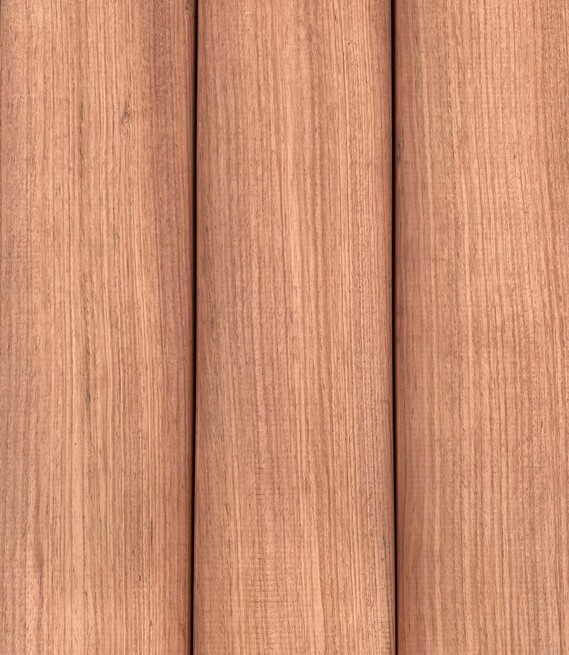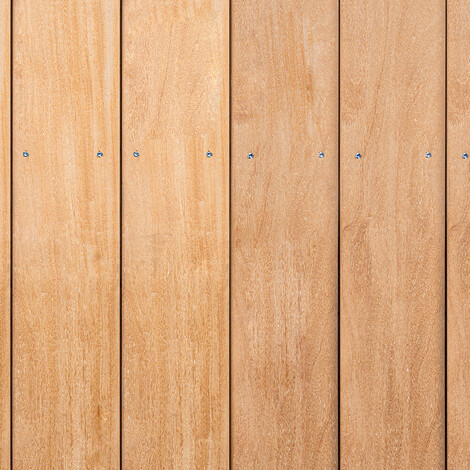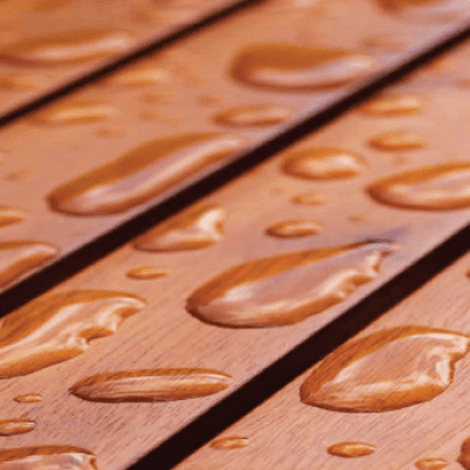JATOBA DECKING TIMBER
Timber Qualities
Jatoba, also known as Brazilian Cherry, is a dense and hard hardwood that is naturally scratch and shock-resistant; and is also very durable in regard to rot, termites, and most other insects, making it an excellent choice for both ondoor and outdoor applications such as decking, flooring and furniture.
It glues well, have a good screw holding, but doesn't nail well. Stains well, but does not take a high polish.
Natural resistance to rot, termites and weathering. Exceptionally stiff, strong, dense and hard.
Other Names: Brazilian Cherry
Principal Uses: Decking, flooring, stairs, doors, windows, marine construction and furniture.
Original Colour: Warm, reddish-brown colour
Texture: Distinctive grain pattern
Density (Dry): 910/m3
Length Spread: 1.8 - 6m
Dried: Kiln
Janka Hardness: 11.9(kN)
Expansion/Contraction: 3.5%
Tannin Bleed: No
Standard Sizes: Smooth - 140 x 19
Life expectancy: 15-20+ years
Durability Class: TBA
Screws: 316 Stainless Steel
FAQ on Jatoba
Jatoba is a popular hardwood timber known for its durability and reddish-brown colour. It's perfect for outdoor use, such as decking, due to its natural resistance to rot and decay. Here are answers to some of the most frequently asked questions about Jatoba.
What is Jatoba hardwood?
Jatoba, often referred to as Brazilian Cherry, is a dense and durable hardwood species native to Central and South America, particularly Brazil.
What are the key features of Jatoba timber?
Jatoba is known for its rich reddish-brown colour, high density, and exceptional durability. It also has a natural resistance to insects, decay, and wear.
How hard is Jatoba wood?
Jatoba is one of the hardest woods available, with a Janka hardness rating of around 2,350, making it extremely resistant to scratches and dents.
What are the common uses of Jatoba hardwood?
Jatoba is commonly used for flooring, furniture, cabinetry, and other high-wear applications due to its durability and beautiful appearance.
Is Jatoba hardwood difficult to work with?
Due to its density and hardness, Jatoba can be challenging to work with using standard woodworking tools. However, with proper tools and techniques, it can be shaped and finished beautifully.
How does Jatoba wood age over time?
Jatoba wood tends to darken and deepen in colour as it ages, developing a rich, warm patina over time, which enhances its visual appeal.
Is Jatoba hardwood environmentally sustainable?
Jatoba is harvested from managed forests, and it is essential to ensure that the wood comes from certified sustainable sources to minimise environmental impact.
Can Jatoba hardwood be used for outdoor projects?
While Jatoba is naturally resistant to decay and insects, it is generally recommended for indoor use due to potential movement and colour changes when exposed to outdoor elements.
How should I maintain Jatoba hardwood flooring?
Regular sweeping and occasional damp mopping with a hardwood cleaner will keep Jatoba floors looking their best. It’s also advisable to use furniture pads and avoid abrasive cleaning tools.
What finishes are recommended for Jatoba wood?
Jatoba can be finished with a variety of options, including oil-based polyurethane, wax, or oil finishes, to enhance its natural colour and protect the wood.
MATES HELPING MATES OUT
Been thinking of building that dream deck of yours? Contact us and we'll sort you out.









